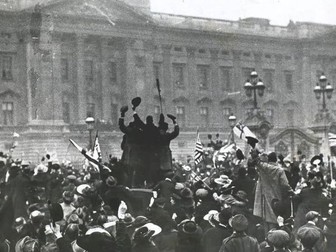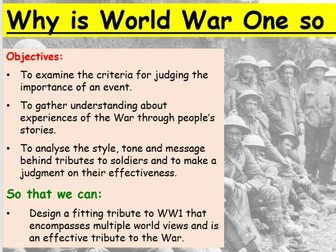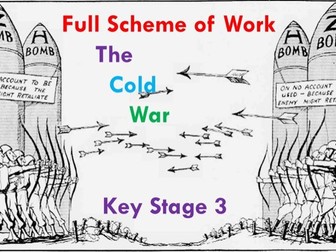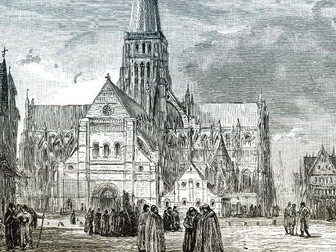The End of World War One
<p>This lesson seeks to encourage the pupils to engage with work on the ending of the War.</p>
<p>The lesson engages the pupils with an argument from TIME article and the pupils are encouraged to consider this thesis and potentially argue against it.</p>
<p>The lesson incorporates a living graph exercise with rigorous historical knowledge and a creative outcome.</p>
<p>The outcome could be adapted to be more inclusive of other aspects of the War, but works well when just considering the end.</p>
<p>The lesson has been tested in the classroom and is engaging, fully resourced with a full write up.</p>



